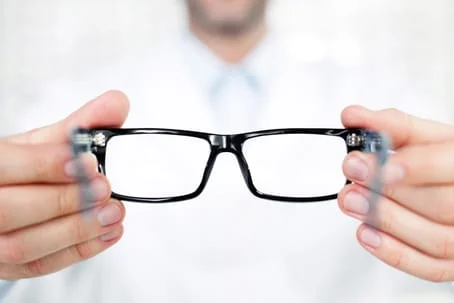Myopia Control And Treatment
Myopia, also known as nearsightedness, is the most common vision problem. At least one-quarter of all Americans need corrective lenses for myopia, and the most severe cases of myopia can lead to increased risk of glaucoma, cataracts, detached retina, and macular degeneration later in life. But in many cases your eye doctor can not only prescribe corrective lenses for glasses and contacts but also prescribe therapies that reverse the condition. Here are three essential facts about reversing myopia your optometrists at Epic Vision Eye Centers in Kansas and Missouri want you to know.
Sometimes eye drops can help children with myopia
You're probably familiar with the atropine eye drops the eye doctor puts in your eyes to dilate them before your vision exam. Many eye specialists have had success using a low dose of these eye drops to help train young eyes to compensate for nearsightedness. Children who receive low-dose atropine eye drops do not strain to focus on the world around them. This relaxes their eyes, so they gradually take on the spherical shape needed for clear vision, even without corrective lenses.
Sometimes your optometrist can prescribe children multifocal lenses that help train eyes to see clearly
We are all familiar with glasses and contacts that make far-away objects clearer for nearsighted people or that make up-close objects clearer for farsighted people. But there are also corrective lenses that accommodate multiple focus points.
Multifocal lenses can also train young eyes to clearly see no matter the distance of the object on which they are focused. They are not an absolute cure for nearsightedness, but wearing multifocal lenses helps to relieve myopia in most children to whom optometrists prescribe them. Multifocal lenses are usually contacts, but there are also multifocal eyeglasses.
There is an ortho-k option for correcting myopia in both children and adults
People of all ages who have myopia can benefit from orthokeratology, also known as ortho-k. In this method of vision correction, the patient wears contacts at night to gently reshape the cornea so that strong corrective lenses are no longer necessary. More patients than not who receive this treatment for a couple of years will not need corrective lenses at all. They will have 20/20 vision. And about 90 percent of patients who get ortho-k will improve to 20/40 vision, legal for driving without glasses or contacts. However, ortho-k is not a permanent solution for myopia. It is an ongoing process.
Epic Vision Eye Centers are ready to help you see life more clearly
The Doctor of Optometry at Epic Vision Eye Centers in Kansas and Missouri have been providing a wide range of services to treat a wide range of conditions for over 15 years. We have a Doctor of Optometry ready to help you with all your eye care needs. Request an appointment online or call us at (888) 749-7755.

